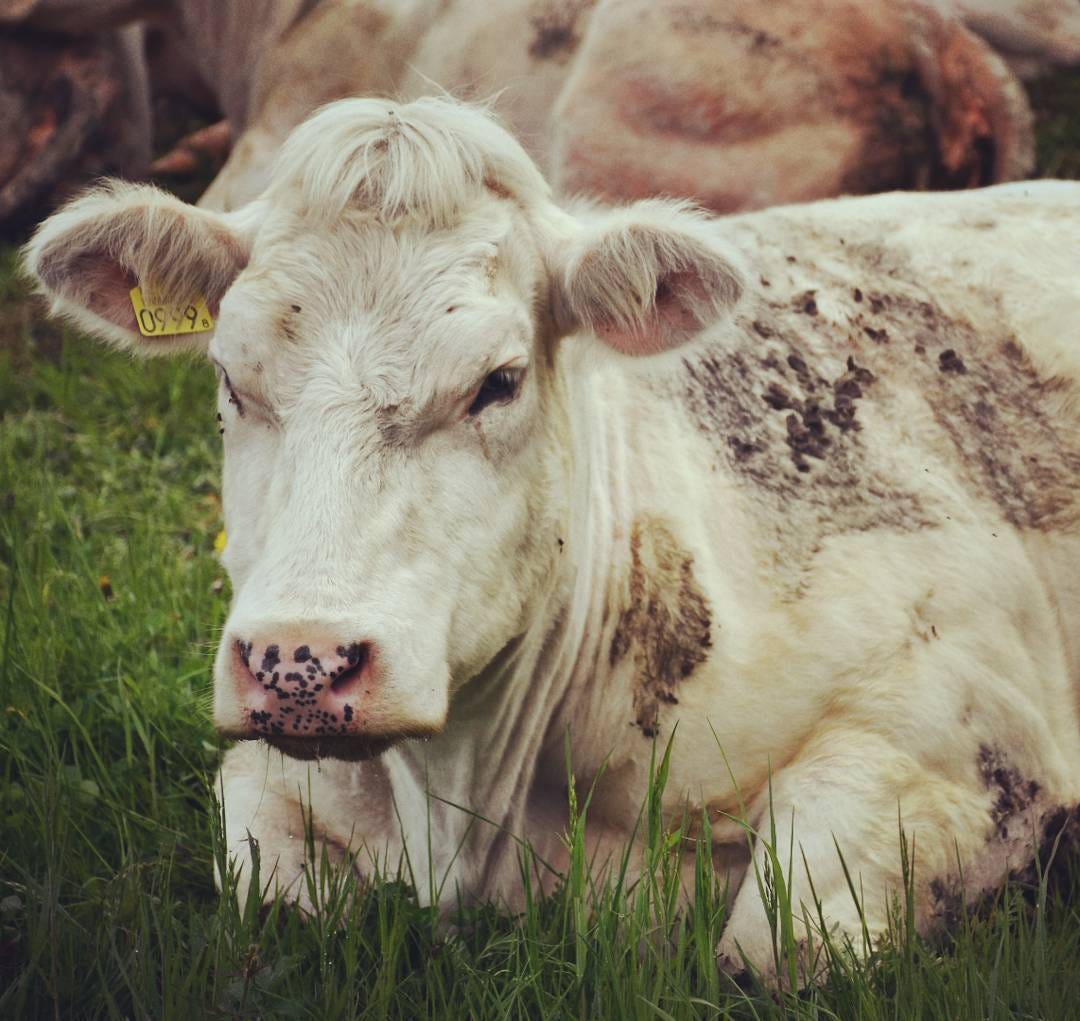2030 "no longer sacred"
The Christian Democrats see the writing on the wall and have abandoned a rigid commitment to the controversial nitrogen reduction policies. A respite for the Dutch farmers?
A brief update on the Dutch farmer protests. The government appears to have backed down, or at least is in the process of doing so. On Saturday, the Algemeen Dagblad published an interview with Wupke Hoekstra, the leader of the Christian Democrat (CDA) party, in which he bluntly stated that with regard to the divisive and controversial nitrogen reduction policies he and his party no longer considered “2030 to be sacred”. He was in principle still in favor of reducing nitrogen, but in some situations he thinks it may take longer. (2030 was the original target date for the nitrogen reduction goals.)
These comments caused widespread consternation in some quarters. Prime Minister Mark Rutte huffed and puffed about this being on “the edge of the permissible”, given that speaking with “single voice” is a governing principle for a coalition government. But as the Dutch say, de hek is van de dam, the floodgates have been opened. Yesterday (Tuesday 23 August) the Tweede Kamer held a day-long debate and to his credit Hoekstra and his CDA cohorts stuck to their guns.
There will now presumably be a long process of bureaucratic face-saving. The newly minted minister of Natuur en Stikstof (Nature and Nitrogen, yes, really), Christianne van der Wal, will talk bravely about persevering with the 2030 deadline. The green ideologues will complain and campaign. The farmers may continue to protest, but I think it’s safe to say we’ve reached a turning point.
As was the case in many Western Europe countries, the center-right Christian Democrats were for decades a pillar of the governing class, alternating power with the other coalition stalwart, the center-left Dutch Labor Party (PvdA), in an almost ritualistic fashion. As has happened elsewhere, these two traditional centrist parties have in recent years seen their electoral fortunes implode. The Christian Democrats once formidable electoral base was the provincial middle-class, notably the vast farming sector and those whose livelihoods and identities are connected to it. Faced with widespread and growing resistance, Hoekstra and colleagues must have realized that their party was doomed to complete and total oblivion if they didn’t change course.
With this apparent retreat, the Dutch Cabinet may have bought itself some time, but potentially even greater challenges are looming. While Tuesday’s parliamentary debate largely focused on farmer crisis, the deteriorating economic situation was also on the radar. One risks the opprobrium of bien pensant Holland by quoting anything uttered by the much-reviled opposition figure Geert Wilders, (PVV), but he pointedly (and rightly) asked why with skyrocketing energy costs threatening many Dutch families with poverty why tens of millions of euros are being funneled to Ukraine. It is increasingly clear that the situation there is turning info an immense military debacle, yet Europeans are being told by misguided and deluded mandarins such as the EU’s foreign policy capo Josep Borrel that Europe needs to stay the course and bravely suffer the economic consequences. The Netherlands is not so dependent on Russian energy supplies as other European countries such as Germany, but markets being markets natural gas prices here are through the roof, with people now seeing their energy bills jump three or four times practically overnight, leaving many in a new and unfamiliar predicament. It’s called energy poverty.



They are noticing (Christian Democrats) that if they do not meet at some point, they will be deemed useless and with them the so-called hierarchical system. I think protests, though with some issues, unavoidable due to the nature of Western approaches, still show how useless the political class is, and how mediocre they are. This is a step forward, but I suspect more to come in Spring after harsh Fall and Winter for the people, and hopefully some real organizing.
Thanks, fabulous, magical; because to me this is part of the inevitably increasingly infinite flow to which we all belong (merely by imagining and making this realisation); the energies that cannot be conveyed easily in words nor perhaps at all. Time and energies, gravity and much else we are taught, is reality only when we believe it to be so. And so (for me, and we are each unique, while also one with everything), when we step into being who and how and what we want to be, which is also for many of us what we fear most, then magic really starts to amplify. That's the best I can do at the moment. Ripples and seeds. Energy is very interesting, and free. Thanks and love to all :)